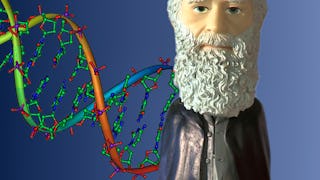Filter by
SubjectRequired
LanguageRequired
The language used throughout the course, in both instruction and assessments.
Learning ProductRequired
LevelRequired
DurationRequired
SkillsRequired
SubtitlesRequired
EducatorRequired
Explore the Cell Biology Course Catalog
 Status: Preview
Status: PreviewKorea Advanced Institute of Science and Technology(KAIST)
Skills you'll gain: Cell Biology, Physiology, Immunology, Biochemistry, Pathology, Endocrinology, Pharmacology, Molecular Biology, Chronic Diseases, Oncology
 Status: Preview
Status: PreviewDuke University
Skills you'll gain: Molecular Biology, Biology, Biostatistics, Biotechnology, Environmental Science, Scientific Methods, Mathematical Modeling
 Status: NewStatus: Free Trial
Status: NewStatus: Free TrialLecturio
Skills you'll gain: Molecular Biology, Biochemistry, Cell Biology, Pharmacology, Biology
 Status: Preview
Status: PreviewAmerican Museum of Natural History
Skills you'll gain: Medical Science and Research, Healthcare Ethics, Biomedical Technology, Clinical Research, Biotechnology, Cell Biology, Life Sciences, Biology, Drug Development, Precision Medicine, Molecular Biology
 Status: Free Trial
Status: Free TrialJohns Hopkins University
Skills you'll gain: Oncology, Medical Imaging, Patient Education And Counseling, Diagnostic Radiology, Radiation Therapy, Molecular Biology, Diagnostic Tests, Clinical Trials, Pain Management, Preventative Care, Treatment Planning, Urology, Patient Treatment, Immunology, Epidemiology, Surgery, Cell Biology, Care Management, Biology, Pathology
 Status: Free Trial
Status: Free TrialJohns Hopkins University
Skills you'll gain: Oncology, Medical Imaging, Diagnostic Radiology, Molecular Biology, Clinical Trials, Radiation Therapy, Cell Biology, Treatment Planning, Pathology, Epidemiology, Biology, Risk Analysis, Surgery
What brings you to Coursera today?
 Status: Free Trial
Status: Free TrialRice University
Skills you'll gain: Biology, Environment, Microbiology, Environmental Science, Life Sciences, Environmental Issue, Sustainable Development, Natural Resource Management, Physiology, Molecular Biology, Taxonomy, Cell Biology, Anatomy, Climate Change Adaptation, Estimation, Mathematical Modeling, Scientific Methods, Climate Change Mitigation, Experimentation, Case Studies
 Status: Free Trial
Status: Free TrialUniversity of Colorado Boulder
Skills you'll gain: Molecular Biology, Biochemistry, Human Development, Biology, Environment, Chemistry, Cell Biology, Environmental Issue, Child Development, Environmental Science, Life Sciences, Environmental Resource Management, Music, Biotechnology, General Science and Research, Decision Making, Natural Resource Management, Liberal Arts, Oncology, Sustainable Development
 Status: Preview
Status: PreviewStanford University
Skills you'll gain: Molecular Biology, Biotechnology, Biochemistry, Chemical and Biomedical Engineering, Biology, Scientific Visualization, Structural Analysis
 Status: Free Trial
Status: Free TrialRice University
Skills you'll gain: Human Musculoskeletal System, Anatomy, Endocrinology, Orthopedics, Kinesiology, Physiology, Neurology, Medical Terminology, Cell Biology, Biology, Chemistry, Clinical Practices, Sports Medicine, Physical Therapy, Molecular, Cellular, and Microbiology, Life Sciences, Lifelong Learning
 Status: Free Trial
Status: Free TrialImperial College London
Skills you'll gain: Immunology, Infectious Diseases, Hematology, Physiology, Oncology, Microbiology, Molecular, Cellular, and Microbiology, Epidemiology, Internal Medicine, Chronic Diseases, Public Health and Disease Prevention, Geriatrics, Pathology, Pulmonology, Environment, Pharmacotherapy, Biology, Public Health, Molecular Biology, Cell Biology
 Status: Preview
Status: PreviewUniversity of North Texas
Skills you'll gain: Life Sciences, Biology, Cell Biology, Molecular Biology, Biochemistry, Environment, Environmental Science, General Science and Research, Chemistry, Experimentation
Cell Biology learners also search
In summary, here are 10 of our most popular cell biology courses
- Basic Principles of Cell Signaling: Korea Advanced Institute of Science and Technology(KAIST)
- Introduction to Genetics and Evolution: Duke University
- Molecular and Cell Biology: Lecturio
- The Science of Stem Cells: American Museum of Natural History
- Cancer Biology: Johns Hopkins University
- Introduction to the Biology of Cancer: Johns Hopkins University
- Introduction to Biology: Ecology, Evolution, & Biodiversity: Rice University
- Biology Everywhere: University of Colorado Boulder
- RNA Biology with Eterna: Stanford University
- Human Anatomy & Physiology I: Rice University










